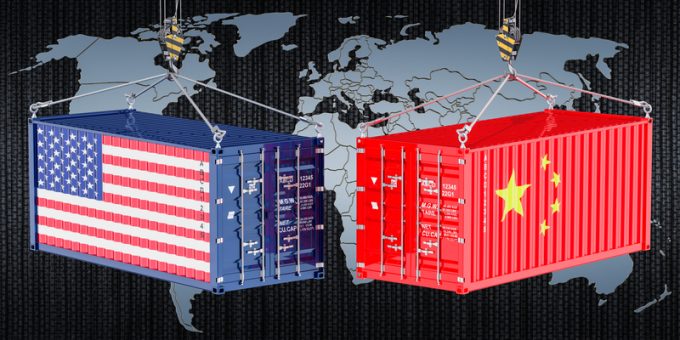Ocean rates rise after tariff pause acts as 'starting gun' for more front-loading
General rate increases (GRIs) give a “clear indication of ocean carrier intentions”, and raise alarm ...

And so it has come to pass: the US has hiked tariffs on $200bn-worth of imported goods from China – and China has vowed to retaliate.
Tariffs have now gone up from 10% to 25% on a wide range of goods, set to impact the perishables, chemicals, construction, industrial, electronics, transport and FMCG industries and, for the first time, a wide range of textiles, among other things.
While today was always the deadline, negotiations between China and the US had led to hopes that Trump’s ...
Crew saved as MSC box ship, hit by 'monsoon' off Indian coast, sinks
MSC Elsa 3 sinking – now the 'blame game' begins
New services and reinstated blanked sailings boost transpacific capacity
After DSV 'cuts the cake' on Schenker acquisition, time for redundancies?
Congestion fear as US west coast ports brace for transpacific cargo surge
$2.1bn E2open purchase will 'catapult WiseTech into a different dimension'
News in Brief Podcast | Week 21 | GRIs and European port congestion
Houthis claim Red Sea safe for box ships not calling at port of Haifa
Shippers hold their breath as Trump appeals court ruling that tariffs are illegal
DHL expands agreement with Shopify – where does that leave Flexport?
Shippers brace for rate rise as smart phones expected to drive air cargo market
US importers stockpiling goods to avert autumn shortages amid tariff chaos

Comment on this article
Joe Alba
May 10, 2019 at 5:52 pmU.S. Companies need to get over their moaning about there own specific problems and understand the overall picture. China has been beating us like a rented mule with unfair tariffs and trade practices since they were permitted to enter the WTO a few decades ago. Since their WTO entry, there has been no retaliatory measures taken by any of our leaders and I think China has been very comfortable with the status quo. We are simply trying to level the playing field, not only with China, but across the globe. This is not a new situation beginning in 2016, this is a situation that has existed since December 2001.